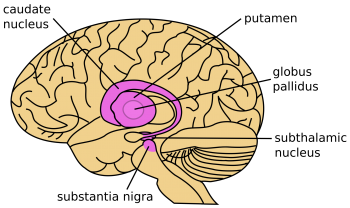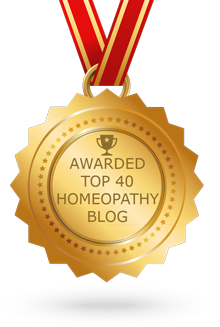Supporting Tourette’s Naturally
It was somewhat of an accident that I ended up exploring the world of natural options for tic disorders and Tourette Syndrome. Like everything else, I figured surely there would be a way of supporting Tourette’s naturally. My background is focused on the homeopathic and nutritional treatment/support of children with behavioural disorders. It seemed fortuitous, then, that I was approached by one of the administrators of an online group discussing natural options for those with tics or Tourette syndrome.
I was asked to give occasional advice on how to prepare homeopathic remedies in the home, and found it full of very dedicated, determined and knowledgeable people. This amazing group of concerned parents and adult sufferers have spent literally hundreds, or even thousands of hours researching possible natural treatments to help reduce the impact of this debilitating condition.
(Language warning on some of the links here!!)
It seems that there are increasing numbers of people battling with all kinds of neurological issues. If they are diagnosed according to particular criteria, they fall into the category of one of the three main Tic Disorders. Tourette syndrome is the best known of these, for its explosive nature has been the topic of reality shows, movies and other awareness-raising media.
There’s an overwhelming amount of information about tic disorders online, and a dizzying array of possible treatment options which may help support those diagnosed with one of these disorders. I’ve done some of my own research since I was approached to join the group, and the main conclusion I’ve come to so far is that you can never know enough about it. Everyone is different, with a different set of symptoms, possible causes and individual susceptibilities.
But the most I’ve learned has been through the stories of the adults and parents of those diagnosed as they tell me about their struggles. Inability to find practitioners who can help them, the lack of support they often experience, and the difficulties they face just getting by in everyday society are only some of the issues they are faced with.
I often sense a level of desperation to overcome the extra degree of challenge they face hour by hour, day by day. These disorders are not only characterised by tics and twitches. They may also be accompanied by other issues such as inability to regulate emotions, vocal outbursts, sensory issues, obsessive disorders, attention deficit disorders and occasionally violent rages.

Can Clerodendrum inerme (Cleo) offer natural support for Tics and Tourette’s?
So, my introduction to this online group consisted of attempting to answer questions on how they should prepare an herb called Clerodendrum inerme, or Cleo for short. Cleo is well known in those circles for helping to reduce tics. The leaves can be prepared as an herbal tincture, dried and put into capsules, or potentised as a homeopathic remedy. This was where I came into the picture.
While answering questions where I could, and gradually learning more about tic disorders, some of the people in the group began to come see me as clients. So now, fast forward a few years later, I feel like I’ve learnt so much. But it’s still far from enough to completely understand the mechanisms and nature of tic disorders. Even so, I’d like to share with you some of the knowledge I have gained in the hope that other people may find some benefit.
Some underlying mechanisms behind Tic Disorder and Tourette Syndrome
Many studies on tic disorder and Tourette Syndrome show a strong genetic link. Whether it is a specific set of genes coding for certain movement centres of the brain believed to be affected, or other genes coding for other processes affecting brain function, it’s not yet clear which genes are involved. As well as a strong genetic link, there is also a link between the severity of symptoms and environmental factors. I often wonder if it’s actually more about the environmental factors in families such as exposure to heavy metals, certain diets and particular family traumas than about genetics. On saying that, there are other genetic factors at play which can cause problems with the body’s ability to detoxify and protect its own tissues. More on that in a moment.
Whatever the underlying cause, environmental toxins have negative effects on the central nervous system. Certain foods, especially processed foods high in artificial substances, can aggravate tics and behavioural issues as well. Artificial colours, flavours and preservatives, sweeteners and basically anything that appears on a label along with a number have all been associated with harmful effects in children.
There are also many accounts of tic disorders which seem to have been triggered after recurrent infections. This may be associated with PANDAS or PANS which will be described below.

Areas of the brain affected in Tourette’s
Genetic links for Tic disorder and Tourette’s
There have been no specific genes or group of genes identified that are linked to tic disorder or Tourette’s. However, during my explorations I’ve come across some interesting links to other genetic conditions that may be relevant. One of these consists of a range of combined genetic and environmental issues in the field of methylation. Methylation is an incredibly complex set of processes occurring as part of our metabolism and is important for so many things it’s impossible to list them all.
One area I’ve been focusing on in the field of methylation is our ability to detoxify heavy metals and other toxins. It appears that if the body is overloaded with toxins, combined with a typical western diet lacking in many essential nutrients, methylation becomes compromised. Then, the body is less likely to be able to handle the barrage of environmental chemicals, heavy metals and junk foods, and it becomes a vicious cycle. There are many indications that our genetic tendencies are actually quite strongly affected by our lifestyles and the study of this phenomenon is the emerging field of epigenetics. Besides methylation, epigenetics can influence all kinds of other detoxification processes in the body and these can also be supported nutritionally. These processes are very complex and require many minerals, vitamins and other nutrients in order to do what they are supposed to do. All of these processes rely on enzymes and healthy organ function, something that doesn’t always turn out as planned if there are nutrient deficiencies caused either by bad diet or inadequate digestion and absorption. Not to mention that all of these detoxification processes also rely on the genes encoding for these enzymes not to be wonky, which is where the epigenetics comes in. This area of nutrition is super complex and beyond the scope of this article.
You might have heard of your local health food shop selling methylated or activated vitamins. You might have even heard of genetic SNPs such as MTHFR. However, supporting healthy methylation and subsequently aiding in detoxing the body can be a whole lot more complex than merely taking a methylated B supplement, and might not be the only cause. Also, some people should really avoid methylated B vitamins as they can cause quite major and unnecessary aggravations. Additionally, there are many vital minerals (some of which are discussed below) which also play a pivotal role in methylation.
Back to epigenetics for a moment – other genetic mutations hinder the body from making its endogenous antioxidant glutathione. Glutathione helps to protect your body’s tissues in the event of oxidative processes such as build up of toxins, immune processes like fever, or just everyday metabolism. Other mutations can mess with our various neurotransmitters, whether in the act of producing them or breaking them down. Not only that, our neurotransmitters and naturally produced antioxidants require certain nutrients in order to be produced in a healthy way, even if our genes are working correctly.
Pyrrole
Pyrrole, or pyroluria is a condition that has a genetic component to it in that there has been some evidence of a familial link. It’s a bit of a chicken or egg situation with pyrrole, (like methylation), in that it’s difficult to know whether exposure to toxic substances and/or high stress or trauma would be enough to trigger this condition in everyone. There is, however, a growing belief that some people are more prone to it – here we are with epigenetics again. Don’t you think it’s amazing that our lifestyles have so much influence on how our genes express themselves? It’s almost like we create our own health or something!
Anyway, back to Pyrrole. After a major stress, whether physical or mental/emotional, it’s as though a switch has been flipped and they experience a “never well since” situation as a result. Whatever the cause, this condition results in a lack of zinc, B6 and magnesium (among other, more complex nutrients). There also seems to be a connection between a person’s methylation ability and their tendency to develop pyrrole. The significance of the main vital nutrients will be covered below, but to generalise, conditions such as pyrrole can cause havoc to both the immune and nervous systems.
PANDAS/PANS
Another possible underlying cause of tic disorders and Tourette syndrome is PANDAS. This incredibly complicated group of conditions can result in damage to the central nervous system, especially in the areas of the brain responsible for movement. There are many people suffering from tic disorders who have a history of recurrent infections and have been either diagnosed with PANDAS/PANS or suspect this is what brought on their symptoms.
They will often say that the condition came on practically overnight after a particularly severe sore throat, episode of scarlet fever, skin infection such as impetigo or ear infection (as well as many other possible infections). I can’t help but wonder about the connection between a compromised immune system increasing their tendency for infection (as well as the complications of those infections), and what I described above about methylation and pyrrole.
Other infections/imbalances and gut issues
Many health practitioners will go on and on about the health of the gut, and there are many very good reasons why. If gut function is compromised, a person is more likely to experience impaired immune system function, issues with moods and imbalances in gut flora. This is becoming ever more significant as we find out more about the gut and its connection to literally every system of our body.
Candida, parasites and other micro-organisms, when out of balance, can cause far-reaching problems from skin issues, central nervous system malfunction and immune dysregulation. It’s important to test for the presence of anything that may interfere with gut function. Underlying immune issues, methylation and nutritional deficiencies can also contribute to gut imbalance and make us more vulnerable to parasites and outgrowths of candida.
Where does Cleo fit into Supporting Tourette’s Naturally?
One possible underlying cause that Cleo (or Clerodendrum inerme) might be effective in reducing the impact of is PANDAS/PANS. I haven’t seen it make a huge difference in those with no history of recurrent or severe infections, but I have seen quite a difference in some of those who have. If you read about the properties of this powerful little plant, originating from India, it has been hailed as having strong anti-microbial properties.
Just a note here, there are other Cleo users who have given me feedback to mention that they have found Cleo in its herbal form useful even when there has been no evidence of PANDAS/PANS.
What I have found from the homeopathic preparations of Cleo is that the lower potencies such as 30c and 200c don’t seem to have much effect. Others I’ve talked to have found great success using Cleo at these potencies. Having prescribed quite a few higher Cleo potencies, I’ve found that it can be very helpful, especially alongside constitutional homeopathic treatment.
One thing about Cleo that one of my clients pointed out, and many others seem to experience also, is that it’s quite an unstable herb. Whether you’re drying the leaves and using them in capsules, macerating with alcohol and taking it as an extract, or using in a homeopathic preparation, Cleo just doesn’t seem to last as long on the shelf as other herbs.
A client recently pointed out that her homeopathic Cleo would work really well for a couple of months and then lose its potency. That just doesn’t usually happen with homeopathics or herbal extracts, or dried herbs when they’re stored in the correct way (and I know she stored her homeopathics properly as the other remedies lasted exactly as expected).
Other people have reported that the herbal preparations are more effective than the homeopathic preparations. Remember, any tic disorder, including Tourette’s, is a complex and deep-seated issue. I would not label Cleo as a magic pill or cure-all. It’s not. But in some cases, it has been worth its weight in gold for supporting certain people, and even in the odd occasion eradicating the tics all together.
Also, I just want to clarify that it is not legal to supply high potencies of any homeopathic remedy without a consultation, and self-prescribing is not recommended.
For those interested in how to make a homeopathic remedy of Cleo from the plant, here is an instructional video that Sue Abraham put together. As it was discovered later on about the instability of Cleo, it’s recommended to use 100% brandy or vodka as a preservative in your stock rather than just water, and if you’re making drops out of that use 1:5 ratio of brandy or vodka with spring water.
Nutritional support of Tic Disorder and Tourette Syndrome
Just as it is recommended that homeopathic treatment take place under the care of a professional homeopath, so is nutritional prescribing. Some of these nutrients taken to excess can be detrimental to your health. There are, however, some basic nutrients which can be relatively safely given to support those suffering with tic disorders.
Magnesium
It’s said that a large percentage of the population are seriously low in magnesium. One of magnesium’s roles is to act as a dampener on the nervous system. If we’re low in magnesium, we are more likely to experience cramps, overactive minds, muscular twitches, insomnia and irritability… you get the picture, right?
400mg is a suggested adult dosage. For children, it’s best to get specific advice but around 100-200mg may be beneficial (depending on weight, deficiency signs and pathological symptoms). Magnesium also has a huge part to play in extracting energy from our food, supporting methylation, assisting in neurotransmitter production and detoxifying processes in the body. It is said that magnesium threonate is a great type of zinc to get to help support those with tics, because it’s a specific one for the nervous system.
Zinc
Zinc’s role in nervous system function cannot be underestimated and many sensory symptoms are attributed to zinc deficiency. Zinc also assists in neurotransmitter production, including melatonin which is our beautiful sleep hormone. If melatonin doesn’t get made we don’t sleep! Zinc is also necessary for methylation processes, healthy immune function and so much more besides.
It is said that our soils are chronically deficient in this vital nutrient, which means that many people may benefit from supplementation. Supplementation amounts vary depending on what source you look up, but for adults anywhere between 10-50mg per day is suggested, and for kids 5-25mg. But again, professional advice is recommended. Excessive zinc can accumulate in the tissues and it’s not a great idea to continue self prescribing if there has been no testing to check on zinc status. Long term zinc supplementation can reduce our iron and copper stores, so it’s best to keep up with checking all of these levels.
Iron
Low iron can also be a contributing factor in tic disorders, as well as cause sleep issues and a whole lot of other problems too. Some people who suffer from pyrrole disorder (see above) have issues with their iron levels as well. Some people have super low levels and struggle to increase them, others have dangerously high levels and need to be cautious about what they take in from their diet. There have been studies linking low iron to the increase of tic and behavioural disorders.
B vitamins
This is a rabbit hole, where I will only say that B vitamins can be an incredibly valuable supplement to the diet. But it’s important to seek professional advice when choosing a B complex. Methylated B’s can prove to either be powerfully beneficial or, if the system isn’t quite able to cope with them, disastrous, especially in large quantities. Many methylated B complexes are too strong, in my opinion, and starting gently is very important. They should also be supported with a multimineral otherwise methylation won’t go as smoothly as you might like.
Taking a complex with folic acid (a synthetic version of folate not occurring naturally), or cyanocobalamin (a synthetic form of B12), can be harmful to those who are unable to properly process these nutrients. Many people with methylation issues report that they suffer if they take folic acid especially.
Make sure you consult with a professional in this area to avoid potential setbacks to your treatment.
Trace minerals, vitamins and quality of diet
A large range of vitamins and minerals contribute to healthy bodily function, and there are too many of them and their roles are too complex to go into here. Even so, they are all incredibly important and play vital roles alongside zinc and magnesium, for metabolic processes including methylation. Ensuring a diet high in nutrients and low in processed foods can be tricky when faced with a fussy eater. Zinc supplementation can sometimes be useful in reducing extreme pickiness to the point where you may be able to get some variety into the diet.
Other Considerations when Supporting Tourette’s Naturally
High copper, lead, mercury and other heavy metals can block absorption and/or utilisation of essential nutrients. They can also cause havoc with every single system of the body, especially nervous system function. It’s important to consider working with a professional to assist in supporting gradual detoxification. High copper is especially common in those with tics, and this is actually another very complex rabbit hole to face and beyond the scope of this article.
Homeopathic treatment
Homeopathy can be a very effective tool for helping to support people with tics and Tourette syndrome. The correct constitutional remedy can help to improve all of the metabolic processes, digestion, immune function and mood all in one, as it’s a very individual treatment. For this reason, saying that one homeopathic remedy is great for tics and Tourette’s (of which there are 8000 so far in existence, each of them with its own individual profile) is like saying that only one particular food is best for absolutely everyone suffering from stress.
I’ve given constitutional treatment in quite a few cases and some have been incredible, others needing further support such as detailed nutritional supplementation or specific detoxification protocols. What all of these cases have in common is that each one of them was given a very different treatment plan individualised for their issues. Many of them had blood tests outlining specific underlying issues that we could work on, or other investigations such as hair mineral analysis which can reflect the amount and type of toxic metals and balance of nutritional minerals in the body.
Below is a story outlining one of the more dramatic cases to give an example of how individualised homeopathic treatment and Cleo in potency can be used together. While homeopathic treatment has not been able to help everyone who has come to see me, there have been some very satisfying outcomes.
Amy’s Journey
Eight year old Amy (not her real name), first came to our clinic in early April 2018. Amy had been diagnosed with selective mutism resulting from extreme timidity. She was struggling with learning difficulties and suffering from tics which were becoming increasingly severe and debilitating.
Amy’s family had not found much in the way of answers for her condition and her doctor had prescribed Clonidine to take on a daily basis to assist in controlling some of her neurological symptoms. Amy’s parents had spent many hours and thousands of dollars looking for answers to help support her issues.
It was after Amy was prescribed additional anti-epileptic medication which she reacted adversely to, that her parents contacted me through the online site group.
Amy’s tics consisted mainly of a head nod and shoulder movement reminiscent of breakdancing. The tics seemed to improve when she was running around, having a hot wheat pack on her shoulders or being gently stroked by her parents. Amy also displayed marked sensory issues. There were battles putting on socks, having tight clothes around her tummy, wearing a tie (required for school) and just wearing clothes in general.
Amy also suffered from ADHD, diagnosed in 2015. There were suggestions that Amy might also be on the autism spectrum and her parents were in the process of looking into a diagnosis for this.
In the past, Amy had suffered from multiple bouts of tonsillitis, as well as chest issues including asthma and chest infections. There were many other symptoms I wrote down that day, but those listed above were the most significant when looking at what I may be dealing with as a homeopath and nutritionist.
Given that Amy had a history of infections, even though she hadn’t formally been diagnosed with PANDAS, I was hoping that Cleo may be of assistance here. I initially prescribed one dose of Cleo in the 10M potency, once a month.
Alongside the Cleo I also prescribed a homeopathic remedy specific to her overall symptoms. The remedy I gave her was a daily dose of Baryta phosphoricum which was a close fit to many of the symptoms she was expressing. This remedy is relatively rare, and I haven’t used it with any other clients suffering from tic disorders. Each person expresses their condition differently. To take this remedy when it’s not indicated can be detrimental if it’s not the correct remedy for your condition.
Amy’s parents and I also talked about various nutrients, including zinc, magnesium and other supplements, but she was already taking supplements so I focused on the homeopathy.

Follow up 2 weeks later:
After talking to Amy’s mother, I was stunned. After the first dose of the Cleo, Amy’s tics completely disappeared, overnight! I wanted to burst into joyful tears. The effect wore off after a week, so the dosage was increased to once a week. After two weeks of giving the Baryta phos, Amy had started laughing and chatting with a small, select group of people outside of the family that she knew well, for the first time ever.
Amy also began to be aware and feel sad that she hadn’t previously been able to understand concepts explained in class. For the first time she expressed a desire to try harder with her homework and work in class, rather than run away and avoid it altogether.
As the weeks passed, Amy’s confidence grew, her learning improved, and her behaviour changed. Amy’s parents were thrilled that she was making progress but struggled to watch her realisation that she still had so far to go.
A set back occurred a few weeks into treatment when Amy’s parents were so pleased with her progress, they chose to halve the dose of her Clonidine. This sent Amy into withdrawal and resulted in a worsening of all of the symptoms. Amy suffered severe meltdowns, exaggerated tics and she retreated into herself, which is why it’s always vital to ensure adequate medical support is sought in these circumstances.
Amy’s parents consulted her doctor and the dosage of the Clonidine was increased back to ¾ of the original dose. We also increased the homeopathic remedy to twice daily until symptoms eased back to normal, and the Cleo was given twice weekly. A few weeks later everything had once again settled.
After 4 months of treatment, I spoke to Amy’s mother who mentioned that the treatment seemed to be reaching a plateau. While the tics were still being kept at bay and her confidence had increased by leaps and bounds, Amy was still struggling with her timidity and lack of confidence and was since diagnosed with mild autism.
After asking more about Amy’s history and remembering the details of the sensory and neurological issues above, it appeared that there had been issues with heavy metal toxicity in Amy’s system. We began a nutritional protocol, as well as a detoxification protocol alongside the homeopathic treatment and Cleo.
A few weeks after starting the protocol, Amy’s sore throats returned with a vengeance. It had been a long time she had had a bout of tonsilitis and Amy’s parents were quite rightly worried. I asked her mum if Amy’s behaviour had changed in any way since the onset of the throat issues, and she said that Amy had suddenly experienced a major improvement in all areas of her behaviour.
I explained that in homeopathy, a return of old symptoms can be a great thing, seeing it as a clearing of something previously held in the body. I advised for them to reduce the Baryta phos to every second day, as I believed we had hit a bit of a milestone. Amy has continued to improve ever since, and the tonsilitis rapidly settled.
Overall, Amy’s parents have been thrilled by the changes they have seen over the four months she has been taking homeopathic treatment and Cleo, and so am I!
- The importance of Muscle Mass in menopause - 12/03/2025
- Penny’s gluten free bread recipe - 14/10/2024
- Children and bedwetting: What can parents do to help? - 01/10/2024




Leave a Reply